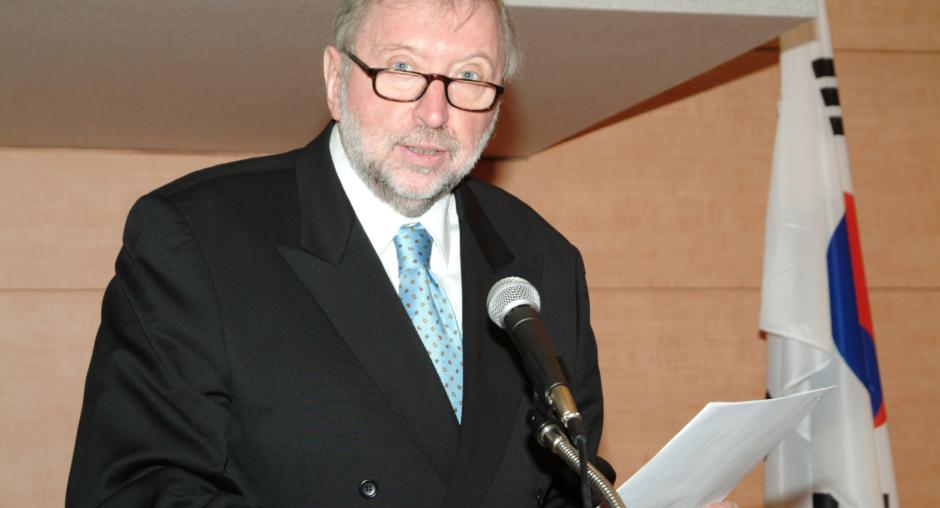OSCE model of co-operation on security issues could serve north-east Asia, says Chairman-in-Office

SEOUL, 25 April 2005 - The OSCE offers a model of multilateral security co-operation that could also be taken up by north-east Asia, Dr Dimitrij Rupel, OSCE Chairman-in-Office, told a joint OSCE-Korea Conference of officials and non-governmental organizations today.
Addressing the theme, New Security Threats and a New Security Paradigm, Dr Rupel, who is also Slovenia's Foreign Minister, said it was up to the parties involved to decide what form multilateral security co-operation would take.
"The Helsinki concept cannot be simply franchised to another region. But there are plenty of commonalities that can be discussed and experience that can be shared", he said.
Noting this was the third such event bringing the OSCE to Seoul since Korea became a Partner for Co-operation in 1994, the Chairman-in-Office said he valued the OSCE's relations with its 11 partners in the Mediterranean and Asia.
"We believe that we have something to offer, but we also have our own interest in reaching out to other parts of the world. The OSCE region is not an island. In our inter-dependent world, what happens on one continent or in one sub-region can affect us all. We should therefore share expertise and best practices to help build a safer world."
As an example, he instanced the support given by the OSCE to the Presidential elections in Afghanistan last year: "This was our first activity 'out of area' - and the OSCE has been invited to do the same for parliamentary elections this year."
The Chairman-in-Office said that the conference title - 'new security threats in a new security paradigm' - reflected a situation that the OSCE had already faced up to, adopting in 2003 its own Strategy to Address Threats to Security and Stability in the 21st Century.
"These threats are well known to us and include economic and social threats, inter- and intra-state conflicts, terrorism, organized crime, and proliferation of weapons of mass destruction." To that end, the OSCE was "retooling" itself to cope with them effectively, he said. And, aware of the overall change in the security environment, its had also engaged a 'Panel of Eminent Persons' to give a new impetus to political dialogue and provide strategic vision for the Organization in the 21st century.
Minister Rupel said one of two important trends he detected in the challenges ahead was that security issues were so complex, inter-linked and diverse that a holistic approach was needed. Fortunately, the OSCE had always looked at security in a comprehensive way, he said.
"The other trend is that security is indivisible, and therefore we need an effective multi-lateral response. The OSCE is an inclusive organization, pooling the interests and capacities of 55 States from the Euro-Atlantic and Eurasian regions in a way designed to tackle common problems", the Chairman-in-Office told the OSCE-Korea conference.
